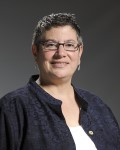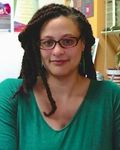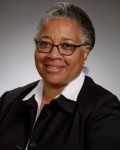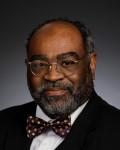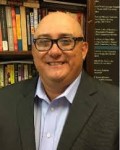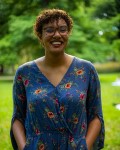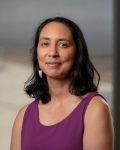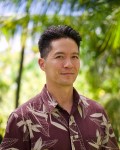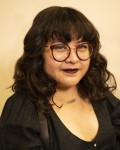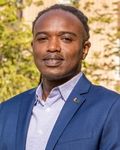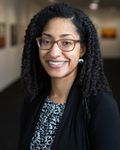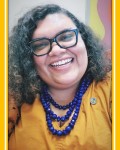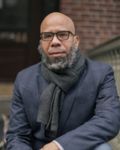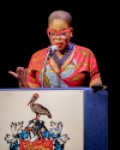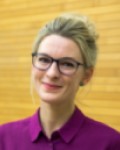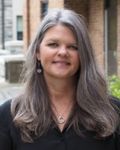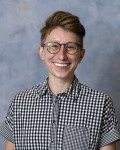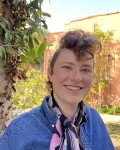ACLS Digital Justice Seed Grants
“Sustaining Hereditary Knowledge of South Indian frame drummers through Digital Music-Mapping.”
We propose to plan a collaborative digital justice music-mapping project focused on the parai frame drum of the Dalits (former “outcastes”) of Tamil Nadu, India. This project addresses disparities in media platform access for musical expression by oppressed hereditary musicians, enabling better control over the understanding, documentation, and transmission of their knowledge. Diasporic appropriation of the parai drum by privileged-caste Tamils, excluding hereditary drummers in transmission, threatens a comprehensive understanding of the art, its diverse practices, and rightful attribution to its originators. Our map redresses these issues by sustaining the art’s diversity, supporting creative resilience, and contributing participatory knowledge creation to oppose global casteism.
Principal Project Team:
Building an Institute for Empathic Immersive Narrative
With the ACLS Digital Justice Seed Grant, we will create an advisory board who will work with us over a period of thirteen months to help us plan an Institute for Empathic Immersive Narrative hosted at Virginia Tech. This board will be particularly needed as we set to design an institute that will bring together underrepresented humanities scholars across the U.S. to study and engage empathy with the latest immersive technologies available at Virginia Tech including VR, high-density loudspeaker arrays, intimate audio through bone conduction, immersive 3D video, and digital storytelling. Our critical interventions will be disseminated in a six episode podcast series, a white paper, and a public facing website.
Principal Project Team:

Tyechia Lynn Thompson
Year:
- 2022
Virginia Polytechnic Institute & State University
Assistant Professor
Decriminalize Survival: An Archive of Activism
Decriminalize Survival is a community-engaged, digital archive project designed to illuminate a submerged legacy of feminist resistance to interpersonal and carceral state violence. Through a variety of traditional and digital humanities methods, the archive provides a searchable database of past and present activist formations, an oral history project, and a gallery space for rotating exhibits. Decriminalize Survival argues for a rich tradition of antiracist feminist and queer activism against the carceral state as it brings together past and present efforts to decarcerate survivors of gender violence; resist gendered prison expansion; confront the reproductive violence of incarceration; and create transformative responses to rape and abuse.
Principal Project Team:
Digitally Exploring the Black and Brown Experience in Texas
This project is a collaborative effort between Prairie View A&M University (PVAMU) and Texas A&M Kingsville (TAMUK), two historically minority serving institutions in Texas. The project focuses on bringing light to black and brown Texans' history through exploring the rich manuscript collections, art work, pictures and historical artifacts housed at each institution's archive. Through exploring and telling the stories behind this rich material and non-material culture our team hopes to highlight this important history. Ultimately, selected items will be digitized and prepared for future use towards our efforts to develop a website.
Principal Project Team:
Mapping Black Freedom, Enslavement, and Activism in the Early Nineteenth Century
At the core of this project is the desire to use open-source digital tools to visualize racial demographics and the geographies of slavery and freedom in the early United States. This project hopes to marshal tools for geographic information systems (GIS), digital storytelling, and JavaScript-based presentation that explore user manipulation of the data and visuals in concert with the arrangement of information by the research and design team. In addition to making public maps that illustrate the demographic realities of race and slavery in the US between 1790 and 1850, the project will also develop an initial site that arranges and maps additional data concerning some of the ways Black communities in the early United States exerted agency across the same geographies.
Principal Project Team:
Na Lei Poina ‘Ole (Beloved Children Never Forgotten): Preparing a Digital Resource on the History of Child Institutionalization in Hawai’i
Our project aims to create a digital resource that would provide more information on the history of boarding schools in Hawai?i. The ultimate goal of the digital resource is helping Native Hawaiians learn and reckon with this history as part of larger efforts towards challenging colonialism, addressing intergenerational trauma, and restoring relationships with the land. The ?olelo no?eau (Hawaiian phrase for wise saying or proverb) that inspires the title of our project, is: “He lei poina ?ole ke keiki,” meaning, “a child is like a lei never forgotten.” We believe that reweaving the stories of these children, and making them truly “poina ?ole,” or not forgotten, is essential in crafting more just futures for children in Hawai?i today.
Principal Project Team:
Nā Lei Poina ʻOle (Beloved Children Never Forgotten): Preparing a Digital Resource on the History of Child Institutionalization in Hawaiʻi
Our project aims to create a digital resource that would provide more information on the history of boarding schools in Hawaiʻi. The ultimate goal of the digital resource is helping Native Hawaiians learn and reckon with this history as part of larger efforts towards challenging colonialism, addressing intergenerational trauma, and restoring relationships with the land. The ʻōlelo noʻeau (Hawaiian phrase for wise saying or proverb) that inspires the title of our project, is: “He lei poina ʻole ke keiki,” meaning, “a child is like a lei never forgotten.” We believe that reweaving the stories of these children, and making them truly “poina ʻole,” or not forgotten, is essential in crafting more just futures for children in Hawaiʻi today.
Principal Project Team:
Queer and Trans Viet Oral History Project
The Queer and Trans Viet Oral History Project is an ongoing intergenerational multilingual oral history documentation digital media project organized and spearheaded by Viet Rainbow of Orange County (VROC). It is the first oral history project in the United States to center the multifaceted experiences of multigenerational LGBTQ+ Viet Americans. The primary purpose of this project is to expand VROC’s existing Oral History Project through three central means: (1) to develop an accessible, multilingual digital repository website to house VROC’s oral histories, (2) to build the VROC oral history team’s digital literacy and Vietnamese language capacity, and (3) to digitize thousands of historical photographs of LGBTQ Vietnamese diasporic experiences from the 1980s.
Principal Project Team:
Reco(r)ding CripTech
Reco(r)ding CripTech documents the creative, interdisciplinary processes of six artists from the disability community in their art-and-technology residencies with the CripTech Incubator. The resulting archive will be fully accessible on the Ground Works online platform. Our working process emphasizes voice, agency, and aesthetic access, and is based on principles of disability justice. This project supports the artists’ in their evolving practices, captures the experience to inform future access-centered artmaking and archiving, and centers diverse ways of knowing and instantiating knowledge. We expect Reco(r)ding CripTech to contribute to a paradigm shift in our understanding of “research” by redefining who produces knowledge, how they do it, and how that knowledge is represented.
Principal Project Team:
Recovering the Histories of Land Treaties in East and Southern Africa
Using the ACLS Digital Justice Seed Grant, we will plan for developing a large-scale digital humanities (DH) exhibition that illuminates the creation, history, and long-term consequences of land treaties in nineteenth-century eastern and southern Africa. Our plan pursues four objectives: Developing a prototype exhibition of digitized texts and objects plus critical materials, with sample results accessible to English-, Kiswahili-, and isiXhosa-speaking audiences; Writing a methodological reflection on project development and international collaboration; Strengthening the collaboration between the four stakeholders: and Drafting a grant application to support a large-scale digital humanities exhibition.
Principal Project Team:
Remaking the World of Arturo Schomburg
“Remaking the World of Arturo Schomburg” is a collaborative digital edition of the papers of Arturo Schomburg (1874-1938), the Afro-Puerto Rican bibliophile who built two of the world’s most important collections on African diasporic history. Fisk University and the Schomburg Center for Research in Black Culture—the two institutions where Schomburg was a curator—have partnered with a team of scholars, led by Laura Helton and Melanie Chambliss, to digitally unite Schomburg’s correspondence and create a portal for research and teaching. Currently in its planning phase, this project will launch in 2025—the Schomburg Center’s centennial—with a mini-edition, “Black Bibliophiles in Nashville and Harlem,” illuminating the intellectuals and librarians who founded the field of Black history.
Principal Project Team:
Rochester Digital Annotation Project
The Rochester Digital Annotation Project has two primary objectives: 1) to grapple with how digital annotation can enable community members and scholarly researchers to understand the racial and sexual histories in various audiovisual archives held in Rochester and 2) to explore how to generate accurate and inclusive data and metadata about these archives over which community members and scholarly researchers have shared authority. To these ends we will prototype five data dictionaries through the digital annotation of a selection of materials from the Portable Channel collection held by the Rochester-based Visual Studies Workshop: two centered in the knowledge and needs of Black and LGBTQ+ communities and three in the knowledge and needs of Black studies, queer studies, and media studies.
Principal Project Team:
Sounding Data Justice for Environmental Liberation in Southeast Queens
The project initiates university-based, transdisciplinary support for a community-run digital justice initiative in data literacy, data ethics and environmental awareness with the Eastern Queens Alliance, Inc. (EQA), a federation of civic associations in pollution-burdened Southeast Queens. In response to EQA's interest in art-science initiatives, it transforms data into sound to develop new ways of sharing air quality and aircraft noise data that EQA gathers, controls, manages and interprets. In workshops and listening sessions with community members, it sonifies extrapolated values to explore correlations between measurements for a community-grounded, public college-facilitated art-science effort to grow data literacy and foster environmental equity through liberation science and ecological art.
Principal Project Team:
SUGAR ATLAS: Counter-Mapping Diabetes from the Caribbean
Public health is built on maps. But when it comes to diabetes in the Caribbean, many existing maps are alienating, incomplete, and full of errors. Yet remedying these misrecognitions is not simply a matter of more granular data either. Maps have long been instrumental tools for colonial and imperial power. This creates double binds in mapping the most basic facts of what is happening to people. We envision this project as a collective attempt at counter-mapping diabetes care from the Caribbean. With a focus on making visible the planetary and embodied legacies of sugar – and highlighting the ways women are already mapping their own care – we propose a platform for unorthodox map-making and community art that recognizes people not as public health “risks” or targets, but as knowledge-bearers offering insights from what they have learned by managing to hold up entire worlds.
Principal Project Team:
The Afterlife of the 1988 Chilean Plebiscite (Chile 88)
The Afterlife of the 1988 Chilean Plebiscite (Chile 88) is a bilingual digital humanities website that explores the national and international impact of the 1988 vote that led to Chile's return to democracy. An ACLS Digital Justice seed grant will be used to: (1) diversify the digital archive on Chile's democratization process and (2) create a bilingual technical infrastructure aimed at supporting the expansion of Latin American and Latinx digital humanities more broadly. The new digital humanities project will be directed to a Spanish and English-speaking international public interested in democratic transition, Latin American history, indigenous activism, and the role of the arts and humanities in political change.
Principal Project Team:
The Black Grandmother Worldmaking Library
The Black Grandmother Worldmaking Library is a collaborative, community-based model for gathering, archiving, and digitizing our “libraries” (Black grandmothers’ stories and cultural inheritances (e.g., material possessions, cultural traditions, rituals, language, etc.) across multiple, preservable websites that will be strategically and complementarily linked. This publicly accessible digital resource allows Black grandmothers to contribute to and control the stories we tell about their lives. It builds on the work of LaShawnDa Pittman and Trelani Michelle, who aim to repair what we are taught about understudied and misrepresented populations (e.g., Black grandmothers, the Gullah Geechee community) and to reclaim their narratives and culture using firsthand accounts.
Principal Project Team:
The Personal Writes the Political: Rendering Black Lives Legible Through the Application of Machine Learning to Anti-Apartheid Solidarity Letters
Project Narrative - This project uses machine learning (ML) models to extract data from an archive of anti-apartheid solidarity letters predominantly written by Black South African women. This project intends to utilize newly developed optical character recognition (OCR) and handwritten text recognition (HTR) methods to render images of handwritten letters into machine readable text. Once processed, we will then train custom ML models to produce triplets, meaning two or more nouns related via a verb that indicate a qualitative relationship between two categories of data. A knowledge base derived from entity triplets will permit us to better understand the lives, struggles and contributions of Black women in South Africa by collecting data on relations embedded in their own words.
Principal Project Team:
Towards Digital Justice: Developing US Citizenship Application & Website with Refugees & Immigrants
When migrant and refugee communities resettle in the US, they are faced with major challenges of resettlement: housing, employment, education, healthcare, and cultural and technological adaptation. While these cultural complexities, linguistic diversity, and socio-economic factors affect their integration and wellbeing, technological advancement creates additional challenges and barriers in the way migrants consume, interact, and circulate information. Our research findings suggest that the refugee community struggles to get citizenship in the US. Hence, this project uses participatory action research and knowledge justice theory to develop a targeted website and mobile-based application to address the complexities of obtaining citizenship.
Principal Project Team:
Trans Games Digital Zine Project
Co-PIs Dr. Ari Gass (Drexel University) and Dr. Teddy Pozo (Occidental College) are seeking funding to pilot a new digital publication, the Trans Games Digital Zine Project. This project brings together the work of transgender, nonbinary, genderfluid, and gender non-conforming game developers, scholars, and gamers. Taking inspiration from queer and trans independent zine making cultures, this web-based publication shares interdisciplinary scholarship and public humanities work on and about the ways that trans game designers and communities of play have always shaped and continue to fundamentally shape this thriving entertainment industry. Moreover, this project centers trans creators through co-design of the publication platform and facilitated peer review.






